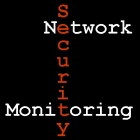Investigative Leads for Network Security Monitoring
 When I worked incident response for Foundstone, my boss Kevin Mandia taught me about "investigative leads." This is a Bureau/law enforcement term for items which are recognized as important in a report but require additional scrutiny. I have several network security monitoring investigative leads which I have not yet had time to follow. I list them here in the event one or more of my readers have checked them out:
When I worked incident response for Foundstone, my boss Kevin Mandia taught me about "investigative leads." This is a Bureau/law enforcement term for items which are recognized as important in a report but require additional scrutiny. I have several network security monitoring investigative leads which I have not yet had time to follow. I list them here in the event one or more of my readers have checked them out:- In November Dave Aitel of Immunity, Inc. posted an announcement of his company's CANVAS Reference Implementation (CRI). CANVAS is a penetration testing toolkit consisting of private exploits written by Immunity, Inc. The CRI is a subset of CANVAS, available for free under NDA, aimed at those wishing to test IDS and layer 7 firewalls (aka "IPS"). I plan to try this out soon, but don't expect public results due to the NDA.
- There's an extended focus-ids thread discussing the need for packet capture and the problems of doing so in high bandwidth environments. Anyone who has seen my Amazon.com Wish List will notice I am researching hardware-based approaches to the problem, like network processors, FPGAs, and microcontrollers.
- A friend pointed me to l7-filter, an "Application Layer Packet Classifier for Linux." This looks really cool. Along with the upcoming release of Snort 2.3 with integrated inline capabilities, I'm being forced to deploy one or more Linux boxes to try these features. If l7-filter is able to profile traffic running on arbitrary ports, it will give open-source-bound NSM analysts a powerful new capability.
- If you have trouble justifying your monitoring duties, you'll face less resistance if you share Wanted: Chief Espionage Officer with the doubting parties. I have yet to read all of this article, but it's a detailed look at (illegal) corporate intelligence gathering.
Regarding the third point -- would anyone care to suggest a Linux distro for my snort-inline and l7-filter projects? I'm going to be running on minimal hardware without X. I'm leaning toward Debian or Slackware and away from Fedora Core, Mandrake, and Gentoo. I'd like a Linux distro that uses the kernel.org kernel as-is, or as much as possible. Is there such a thing? Coming from BSD-land, I'm not current on the Linux scene. Thank you.



Comments
It runs on minimal hardware.
http://www.slackware.com/install/sysreq.php
So i suggest Slackware. :-)
"Debian Stable" is often mangled to "Debilian Stale" and at least the "Stale" part is true. Debian Stable often lacks new software so one ends up either creating a Debian package for it or manually installing the .tgz - which in itself is an Abomination™ against the packaging effort and concept.
I haven't tried Slackware, but I'd shy away from RedHat and SuSE as well. My preferred distro of the year seems to be Gentoo.
cheers, Axel (http://balrog.de/security/)